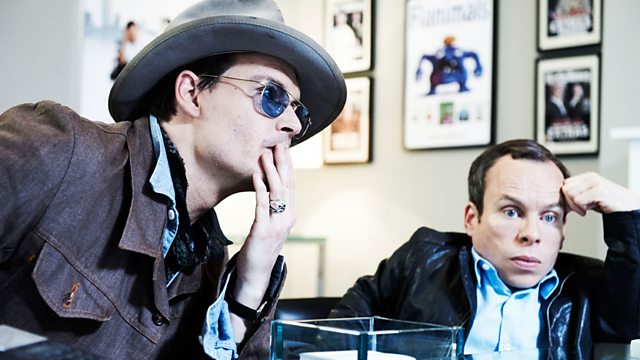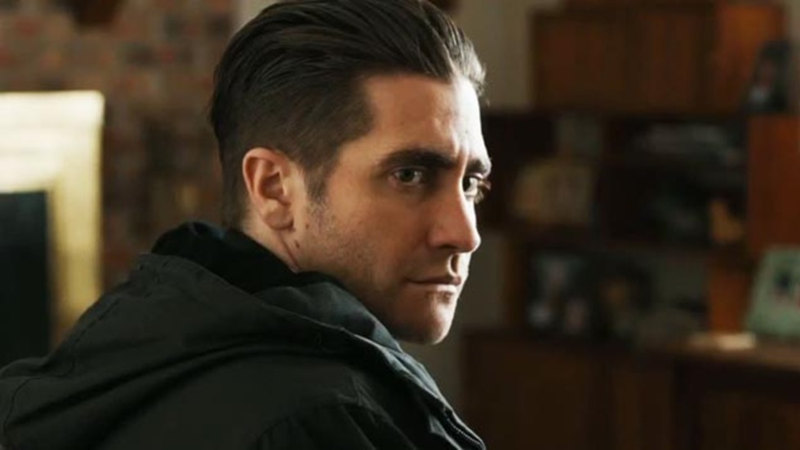Like so many others, I get “The Illusionist” and “The Prestige” confused. Both films were released in 2006, and both are set during the turn of the century–one in London featuring two rival magicians, and the other in Vienna with a single magician whose rival for a lovely young woman is the Crown Prince. Both films, confound them, slipped in a woman’s betrayal, and both required the audience’s full attention. There was no nodding off or going to the bathroom or fetch snacks if you wanted to stay on top of things with either film.
If truth be told, I much preferred “The Prestige” the first time around, but seeing “The Illusionist” and it’s hocus-pocus rival in Blu-ray recently, I thought them comparable. A glance over at Rotten Tomatoes all but confirms the toss-up, with “The Prestige” gathering a 75 percent “fresh” rating and “The Illusionist” a 73 percent.
“The Illusionist” requires slightly less concentration, and maybe that accounts for the errant two percent. Naw, it’s probably the direction, with Christopher Nolan tipping the scales. Relative newcomer Neil Burger wrote the screenplay and worked behind the camera for “The Illusionist,” which is loosely based on the Steven Millhauser short story “Eisenheim the Illusionist.” Given that it’s only his second feature film, coming four years after “Interview with the Assassin,” he does a commendable job of creating an atmosphere and tone that are compatible with the mystery-romance plot. I can’t think of a single scene that falls flat or fails to deliver information. And Burger lets the lavish cinematography (including some vintage techniques, like iris fades and skip printing), scenery, and set decoration work their own magic so that the sense of period permeates “The Illusionist.”
Edward Norton, despite wrestling with a Viennese accent, turns in a fine performance as Eisenheim, whom we see in the opening sequence apparently summoning the dead as part of an illusion . . . and being summoned himself by Inspector Uhl (Paul Giamatti), who, we come to learn, is in the service of Crown Prince Leopold (Rufus Sewell), not the most savory royal. At that point Inspector Uhl fills in the Crown Prince on this fellow Eisenheim, and in brief flashback we see Eisenheim as a young teen who meets a traveling magician and gets bitten by the magic bug. We also see an infatuation develop between the boy and young Sophie (played as an adult by Jessica Biel), a noblewoman whose parents had hired Eisenheim’s father to build a cabinet. Eisenheim makes her a special wooden puzzle locket which holds a secret compartment . . . and a picture of him. But noble and peasant blood can’t mix, and Sophie is forbidden from seeing him again. Make us both disappear, she breathlessly tells the budding magician, who can’t–and therefore loses her.
Fast forward in time and we see that Eisenheim has studied in Asia and has returned to Vienna as one of the most accomplished illusionists of his time. That’s when he realizes that his beloved Sophie is to marry the Crown Prince, who, at a performance, offers her as a volunteer for one of Eisenheim’s tricks. There’s still a spark, and so a potentially dangerous triangle begins to take shape. Complicating matters is Leopold’s own ruthless personality and plans: He’s plotting a coup to grab the throne and using Sophie somehow (this is less clear) to secure holdings in the Hungarian part of the Empire. And then there’s Inspector Uhl, who skulks in the background, always watching, ready to make a move. But what move?
Sewell (“A Knight’s Tale”) makes playing twisted nobleman look easy, and Giamatti and Biel hold their own with two fine actors whose characters play out a complicated and at times macabre chess match. The underlying question is one of life’s biggest: Has Eisenheim, with all his studying in faraway places, learned the secret of life and death, or is he only a master illusionist?
In his theatrical review for DVD Town, Jason P. Vargo called “The Illusionist” a “hands down winner for those who like to be amazed and suspend their disbelief enough to enjoy the film” and praised the artistic design: “Lush and realistic, this movie looks very good in nearly every respect.” I agree. There may be some vague moments where audiences have to get by with the illusion of logic, but overall it’s a stunning and accomplished film.
Video:
“The Illusionist” looks uneven in 1080p, however, and I’m not just talking about the old-cinema techniques that are used to show age. Many of the interiors and night scenes are darker than need be, while other sequences show more grain than some of the brightly lit interiors or cheery exteriors. Some of this seems to be deliberate, but the result is still a picture that varies significantly. “The Illusionist” was transferred to a 25-gig disc using an AVC/MPEG-4 codec (@19.5MPBS), and presented in 1.78:1 widescreen. Imdb.com lists the original aspect ratio at 1.85:1, so I’m not sure what’s up there.
Audio:
The featured audio-an English 5.1 DTS-HD Master Audio-isn’t as dynamic as it could have been, but the rear speakers are sufficiently involved to provide a decent level of ambient sound. But hey, “The Illusionist” is a dialogue-centric film, and if you try to mentally block out the talking and the effects and just listen to Philip Glass’s score, you’ll hear that there’s a nice rich timbre lurking below all the dialogue. Additional options are an English or French Dolby Digital 5.1.
Extras:
There are no Blu-ray features, so it’s darned good that “The Illusionist” comes in a combo pack with DVD. On the second, standard-def disc you get previously released bonus features: An audio commentary by writer-director Burger and two featurettes, “The Making of The Illusionist” and “Jessica Biel on The Illusionist.” If it were me, I would have taken the commentary track and compressed it into a new feature that used photographic stills in slideshow from the hi-def version and put it on the Blu-ray disc.
Bottom Line:
“The Illusionist” is a wonderful period film first and secondarily an interesting mystery-romance that keeps you guessing about the big questions until late in the narrative. The dialogue is intelligent enough and the performances good enough to sustain the illusion of a different era. In my book, that makes it as good as that other magician movie from 2006.


